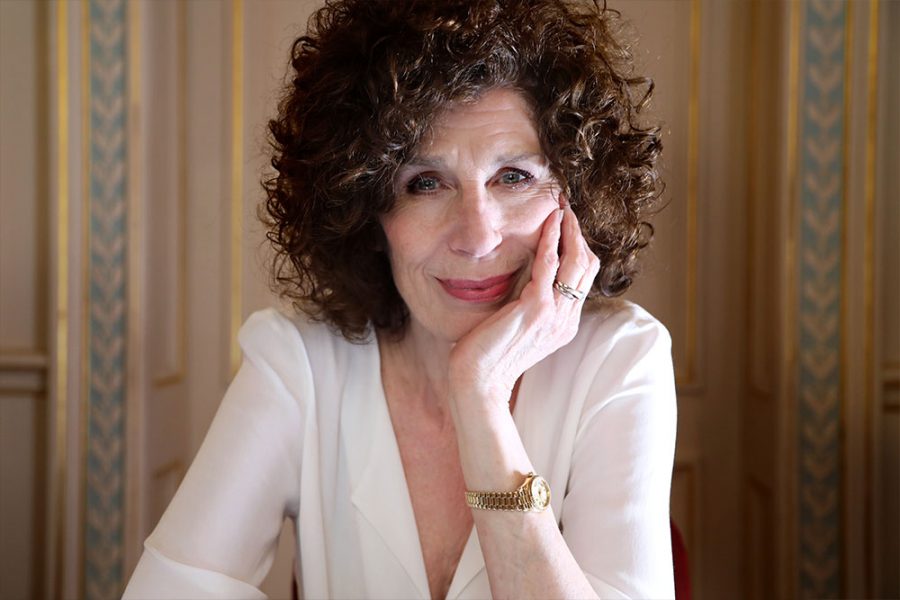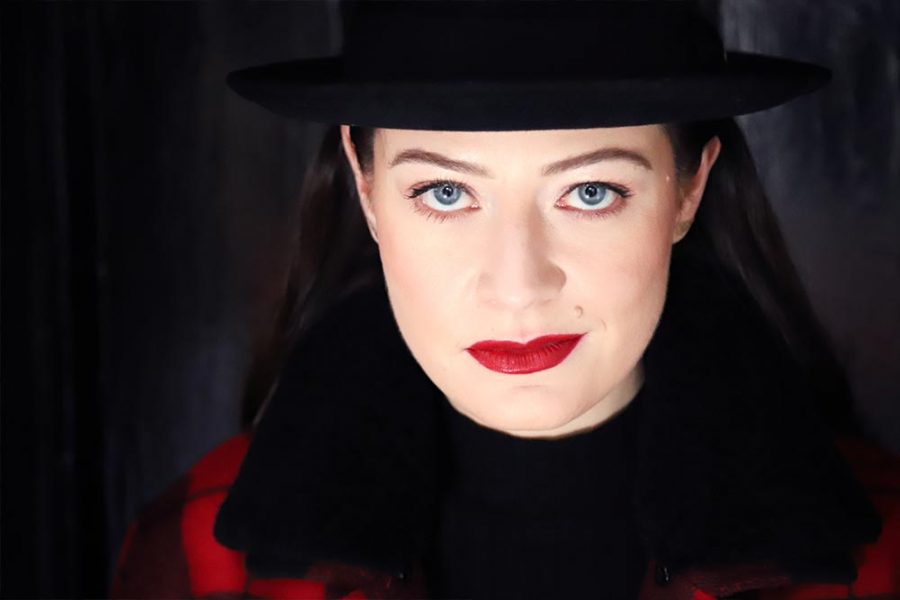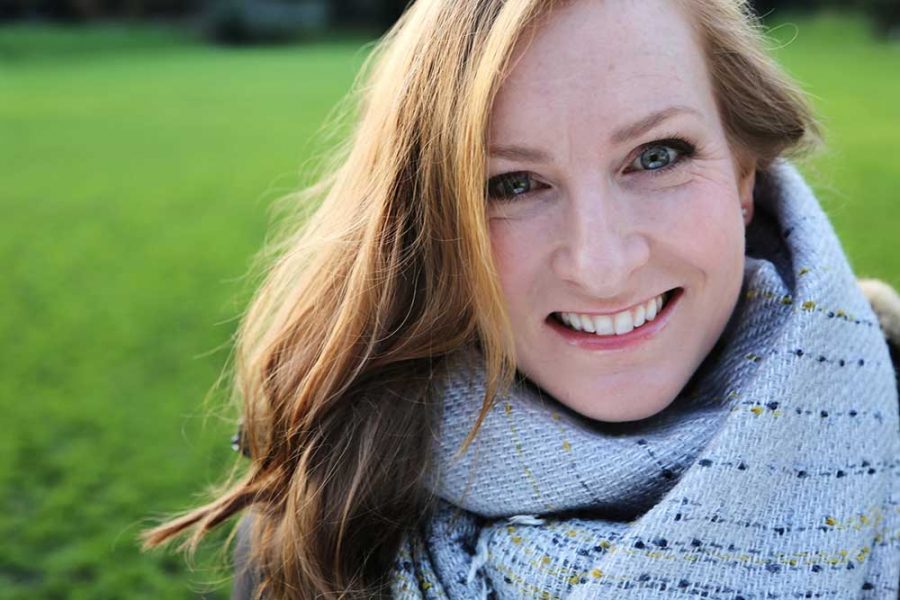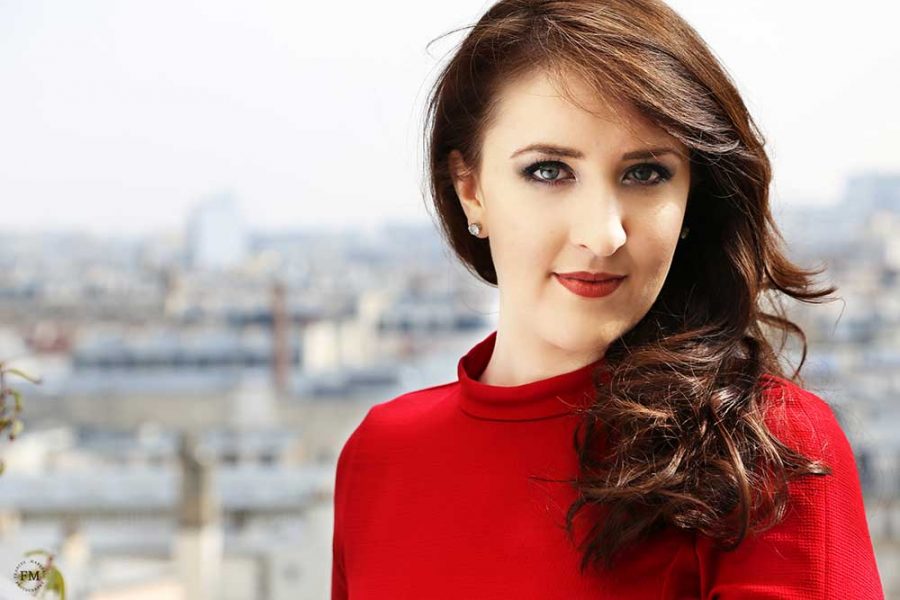Leaving the Ego at the Door: Elizabeth DeShong

November 2019
Interview and photos by
Frances Marshall
Share this article
Known for her ‘wicked virtuosity’ American mezzo soprano Elizabeth DeShong met with Final Note Magazine to give invaluable advice to young singers, her reasons for becoming vegan and the importance of finding stillness in this challenging career choice.
People really like to put singers into a box. ...sing what suits your voice well at that moment, but do be careful not to bring a list of repertoire to an audition that seems “confused”."

Tell us about your childhood, and what was your first musical memory?
When I open up the old family photo albums, some of the first photos are of me putting on shows for my parents. Prancing around in a tutu, putting on my black patent leather dress shoes and pretending to tap dance, sitting on top of the upright piano and singing at the top of my lungs, playing “Talk Show Host” with my dad while preparing meals…that was the daily routine. I was determined to be noticed, to be heard, or so it seemed. That said, my childhood was relatively simple.
My father is a minister and my mother is a nurse. Both of my parents have lovely singing voices and play the piano, but professional musicians do not run in my family. Music at home was enjoyed via my dad’s old 45s… Beatles, The Monkees, Chubby Checker… and, at that time, church music. Musically, I am grateful for those early days of sight-reading hymns and learning to sing harmony in such a casual setting. Singing in choirs and accompanying ensembles on the piano proved highly beneficial, both in school and church.
My first real musical memory, however, is of my third grade performance as “Snow White”. I had a full costume and all of my classmates played the Dwarfs. My big solo was “Whistle While You Work”, but I’m such a terrible whistler that the dwarfs had to do the whistling sections for me. Haha! We all have our gifts, whistling isn’t one of mine.
You also trained as a pianist, how has this aided your career in singing?
The value of piano training for a singer cannot be underestimated. Whenever people approach me and mention that their young daughter or son loves to sing and wants to take voice lessons, I suggest that they first sign them up for piano lessons. A foundation in music theory, learning how to read music, the ability to relate notes within your voice to the keyboard, etc. put you at a tremendous advantage when entering college as a music major. I learn all of my roles by playing through the scores myself. While I may get some help along the way, depending on the language demands, being able to do so much on my own has saved me a lot of time and money over the years.
You have refused to be categorised and instead focus on a healthy, versatile technique. What advice would you give to singers at the beginning of their career who find that they’re not fitting into clear vocal categories?
This is a tricky question. People really like to put singers into a box. When it comes to auditioning, sing what suits your voice well at that moment, but do be careful not to bring a list of repertoire to an audition that seems “confused”. Choose repertoire that is suited to one voice type, give or take, but that allows you to show range and colours that may compliment other repertoire. You don’t have to be a finished product as a young singer, but you have to appear self-assured in whatever you present. Quality singing will speak for itself.
At the beginning of a career in opera, what does a singer need most?
Courage, determination, and an eagerness to learn. You have to simultaneously believe that you have something unique and important to say, but also understand that you have a lot to learn from those singers/directors/conductors who have been in the business much longer than you have. You don’t know better. As a young artist, if you are sitting in a rehearsal watching other professionals, don’t talk and don’t text. Can it be boring? Yes. Will they make mistakes? Sure. Don’t judge. You haven’t lived it. You can only hope to someday be as tired, stressed, lonely, and in demand as they are. *wink*
Oh, and find a teacher that will nurture your humanity as well as your artistry, because they are intertwined. Teachers like this are admittedly hard to find. Just make sure they are dedicated to giving you focused attention and a solid technique. A famous studio isn’t necessary. Then, if you happen to admire a certain singer’s artistry, ask to have a session with them. You’ll be surprised how many singers are willing to make time for you, if you ask.
...find a teacher that will nurture your humanity as well as your artistry, because they are intertwined."

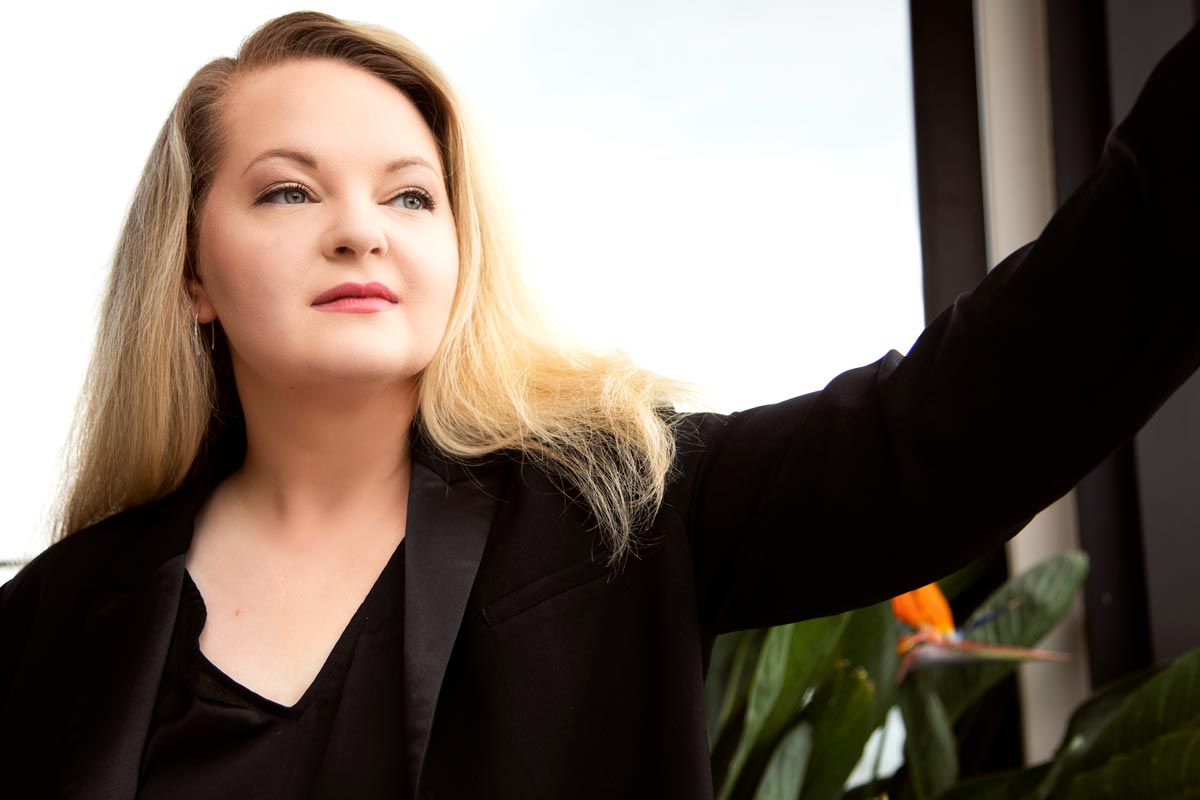


Ultimately, achieving the very thing you desire most, becomes your biggest challenge. Once you find yourself in demand, the pace can become really difficult to maintain."

What made you become a vegan and how do you maintain it on the road?
I am vegan at home and vegetarian while on the road. My decision to adopt this diet was initially an environmental one. I had read too much and was too passionate about conservation to continue to contribute to the systems of food production that are rapidly destroying our planet. It occurred to me that if I felt so strongly about these issues and didn’t act, what was the point? Action matters. Ultimately, we vote with our dollars. Each and every day we make decisions to give our financial resources to companies. If a person has the resources to be discerning in this area, I consider it their responsibility to use that privilege to support systems that are better for us all. Issues of animal abuse and personal health soon became just as important to me as sustainability, and are ultimately intertwined with the impact that factory farming is having on us all, whether we choose to see it and acknowledge it’s effects or not.
As far as maintaining the lifestyle on the road, it really isn’t that difficult. Big cities have become super veg friendly. Even in the past five years, the options have grown by leaps and bounds. Vegan is harder, especially at airports, but still possible. I thought it was perfectly reasonable to set out into a career as an opera singer. Compared to that, how hard can it really be to stop eating animals?!
What are the most challenging aspects of this career?
Haha…how much time do you have? Ultimately, achieving the very thing you desire most, becomes your biggest challenge. Once you find yourself in demand, the pace can become really difficult to maintain. Finding a healthy balance between work and personal time can be hard. I’m fortunate to have a tremendously supportive partner, but I’d be lying if I said I’ve never found myself far away from home, alone in a strange place, questioning whether this lifestyle is for me. You have to choose this career, over and over again. That just scratches the surface of the emotional toll, but as a solo artist, you have also chosen a career that does not provide healthcare (a big issue for Americans), retirement benefits, maternity/paternity leave, paid sick days, etc… For all of it’s many joys, an operatic career is not for the faint of heart.
If you could speak to your 20 year-old self, what advice would you give?
Go ahead and respectfully make your presence known. I didn’t lack confidence in my artistry as a young singer, but I knew I had a lot to learn and didn’t want to make mistakes in front of powerful people. This served me well in many ways, but there are quite a few people who don’t want to look closely at others and will write respectfulness or introspectiveness off as shyness or lack of drive. While untrue, these assumptions may have been an unnecessary early barrier to my being seen. (Oh, and, go ahead and learn that Handel aria that your teacher and coaches told you you should sing, you’ll need it later and you’ll learn to love it!)
You have spoken before about the power of your mind as a performer, what do you do on a daily basis to strengthen this part of you?
As simple as it sounds, I remind myself to breathe. It is in my nature to be perfectionistic and push myself beyond what is expected of (or healthy for) me. Taking a moment to stop and connect with my breath can do a lot to slow down my mind, ease anxiety, and refocus my perspective. The Headspace app was initially really helpful in getting me into a meditation/mindfulness routine. I go in and out of practice, but even a single minute of stillness can be beneficial.
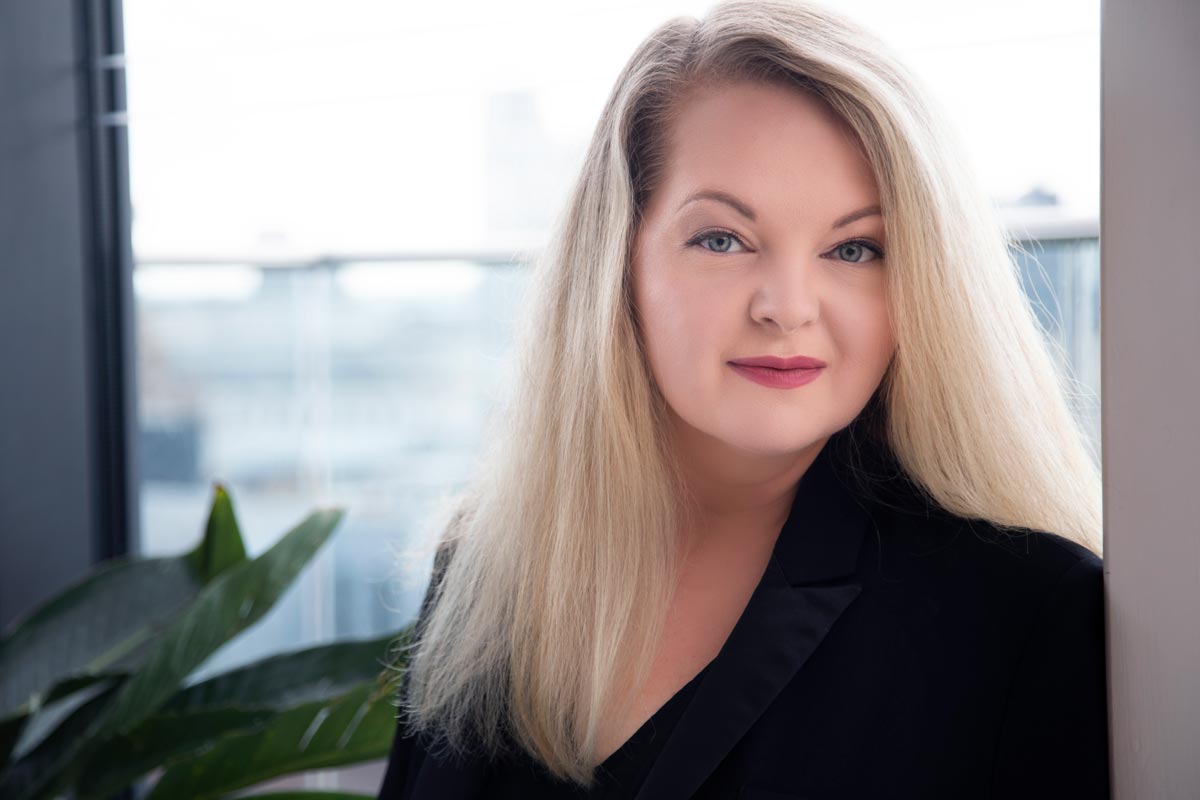

Tell us about your process, what is your journey from opening the score to performing on stage?
Hmmm, my process… I suppose it all starts with translating the score. Once I have a literal translation of the words, then I sit down at the piano and start learning the music. With the dramatic context in mind and the notes learned, I then write my ornamentation, shape the recits., play with the dynamics, find the necessary colours, explore tempi that work, etc. From there, I start envisioning the physicality that might represent the character. Even though it might change completely once rehearsals start, having some idea of what I would do in the scene if I were directing has proven highly valuable. From there, it becomes about surviving the rehearsal process. At the end, you hope that the combination of your work and the work of those around you creates something that resonates with your audience in a meaningful way.
Who do you look to for professional support and guidance?
I keep my circle small. Everybody in this business has an opinion, and everybody talks. The fewer people you have creating chatter, the better, in my opinion. My manager, publicist, and husband are generally my “go to” folks. On the road, however, my network of opera singer friends is a big support. I’m very private, but having the support of other artists who know the struggles this job presents firsthand, is invaluable.
I keep my circle small. Everybody in this business has an opinion, and everybody talks. The fewer people you have creating chatter, the better, in my opinion."

...women are in the unique position of understanding what it is to work twice as hard to get half as far, be it in title or pay grade. Having this understanding at the core of your leadership means you understand the value of hard work..."

When deciding on whether a role is suitable for you, where do you draw the line between a healthy challenge or potential mistake?
The first step is sitting down at the piano with the score and determining whether the role is vocally healthy for me. If the answer is ‘yes’, then I look at the timing of the contract. What am I singing before and after this role? If the timing seems doable, the next question is about who is directing and who is conducting the production. Will this specific musical and creative team be supportive in helping me build the character for the first time? If I have hesitation, this might be where I say ‘no’. I’m learning more and more to trust my instincts in this area. Even something that you sing well can become a mistake if you find yourself in an unsupportive situation.
What do you look for in a colleague?
The best colleagues are the ones who arrive prepared, leave their egos at the door, and work with a spirit of collaboration.
What would you like to see change in the next 10 years of classical music?
Just as in the rest of society, I want to see more women in leadership positions. Be it as conductors, general directors, artist managers, etc., women are in the unique position of understanding what it is to work twice as hard to get half as far, be it in title or pay grade. Having this understanding at the core of your leadership means you understand the value of hard work, you value equal pay for equal contribution which, in theory, would further extend to the pay of female instrumentalists and vocalists. You also understand what it is to be vulnerable. Women, like all performing artists, are constantly being judged by factors that are often beyond their control. We know what it is to be preyed upon and exploited. This level of awareness often brings with it a reciprocal decision not to inflict this kind of judgement on others, and to approach all people as human beings that are worthy of respect. Classical music will benefit tremendously when this becomes reality and the music of the past will continue to thrive as music of the present, once it is supported with these ideals that the forefront.
To find out more about Elizabeth DeShong see: www.elizabethdeshong.com
All images displayed in this article are subject to copyright.
Share this article


